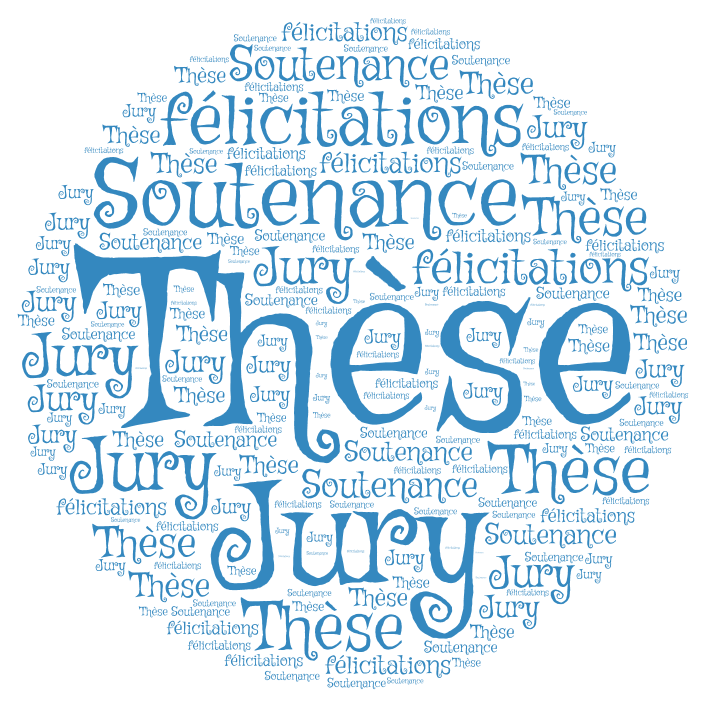
Doctorate thesis defense on October 16th 2024 at 08H30 AM ,in Amphitheater Ibn Kholdoun, SUP'COM 2.
Entitled :Performance Evaluation of LoRa Networks
Presented by :Takoua Mahjoub
|
President |
Pr. Neji Youssef |
SUP'COM, Tunisia |
|
|
Reviewers |
Pr. Noureddine Hamdi |
INSAT, Tunisia |
|
|
|
Pr. Bassem Ben Salah |
INSAT, Tunisia |
|
|
Examiner |
Dr. Sameh Najeh |
SUP'COM, Tunisia |
|
|
Supervisor |
Pr. Hatem Boujemaa |
SUP'COM, Tunisia |
|
The Internet of Things (IoT), a concept that connects many types of items to the Internet, has made a revolution around the world. Low-Power Wide-Area Network (LPWAN), a new category of wireless technology has evolved to address the continuous need, within IoT networks, for a wide range with low power consumption. LPWAN involves Long Range (LoRa), Sigfox and Narrowband IoT (NB-IoT). LoRa, which is a proprietary technology patented by Semtech, is classified among the most popular IoT connectivity solutions. This thesis focuses on LoRa/LoRaWAN technology as a promising LPWAN candidate for the IoT. Our primary aim is to evaluate and analyze LoRa network performances and propose new approaches to enhance its Quality of Service (QoS). Two main axes have been investigated, Error Probability evaluation and path loss characterization. For the first axis, the Bit Error Probability (BEP) and the Packet Error Probability (PEP) for different communication channels - namely Rayleigh, Nakagami and Rice - are carefully examined. We propose two cooperative relaying schemes for LoRa communications, which are multi-hop Decode and Forward (DF) and dual-hop DF with relay selection. For each scheme, we develop close-form expressions of the BEP and PEP for Rayleigh, Nakagami and Rice channels. Besides, we study the packet delay performances when the packet arrival follows a Poisson Process. For the second axis, a series of experimental measurements were conducted in urban and palm tree environments to characterize LoRa signal attenuation and develop a reliable path loss model. For urban areas, we study and optimize existing path loss models for LoRa networks; two new optimized path loss models are derived from conventional Hata and Standard Propagation Model (SPM) models. We also propose the use of two machine learning methods, Support Vector Regression (SVR) and Artificial Neural Network (ANN) or path loss modeling. The obtained results show high accuracy for the newly developed models. For the palm environment, experimental data was collected at various oasis sites to accurately characterize the signal attenuation for LoRa networks in such environments. Our study includes (a) a review of the suitability of some existing attenuation models for oases; (b) experimental analysis and optimization of two models of two models: The log-normal and Parametric Exponential Decay (PED); (c) a proposal of a new path loss model which expresses the excess attenuation, added by the presence of palm trees, as a function of the vegetation density expressed as the product of the tree density and trunk diameter; (d) an assessment of the path loss prediction model in comparison with the previous attenuation models.
IoT, LPWAN, LoRa, BEP, Cooperative LoRa, Path loss
Maintenant, allez pousser vos propres limites et réussir!